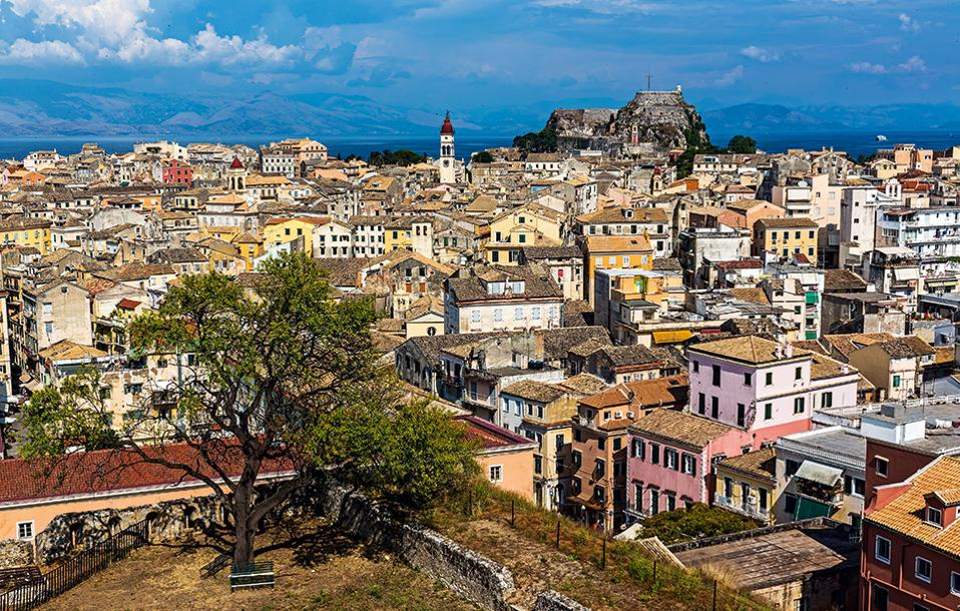 SManalysis
SManalysisKATHIMERINI
In May, Corfiots “celebrated” the 154th anniversary of the day the United States of the Ionian Islands ceased to exist and became part of Greece. It was the first major territorial accretion to the fledgling state and it had been controversial in both Corfu and Athens. It still is.
Opinion in the islands was sharply divided. Greeks felt that they should be part of Greece, just as Greek Cypriots would say a century later. But those who had become rich under the British 50-year protectorate (which largely turned a blind eye to corruption in local government) opposed “enosis.” Meanwhile in Athens many feared that the intellectuals and cosmopolitans in the Ionians would bring a troublesome liberalism and radicalism (the “rizospastis”) to the cozy conservatism of the Vouli.
About 15 years ago a Corfiot actually registered a political party with the aim of campaigning for secession from Greece. The argument was that, due mainly to tourism income, islands like Corfu, Rhodes, Crete and Myconos contribute far more in tax revenue to the Athens exchequer than they receive in benefits. He wasn’t wrong: The roads are in an appalling state; we have almost no hospital facilities; we have the same “aromatic” problem with garbage disposal as in Attica.
Unfortunately, however correct he may have been, his own business dealings caused him to secede from Corfu rather rapidly himself, leaving more than enosis unresolved. But he was only voicing concerns that have persisted since 1864. Corfiots continued to bewail the changing political and social landscape. The rise of the nouveaux riches and of a self-serving political class was especially chronicled in Constantin Theotokis’s 1922 novel “Slaves in their Chains” (“Oi Sklavoi sta desma tous,” filmed in 2008 by Tonis Lykouresis).
Theotokis was an aristocrat who became a socialist and anticipated the coming legislation by giving away much of his estate in Corfu to his tenants so that they could own the land they had farmed for his family.
The novel (translated into English by Mark Davies) is autobiographical in that it chronicles the decline of the aristocracy and of an island way of life. The Count in the story is so impoverished that he “sells” his daughter to an up-and-coming bourgeois who is bound for the Athens Parliament.
As a threnody for the old feudal system it is merely a curiosity. But as a commentary on the replacement of that system by a mercenary middle class, the abandoning of the land as a way of life, and the professionalization and commercialization of modern politics, it remains an indictment of 20th-century Greece.
Theotokis was a cousin not only of Dimitrios Rallis, who was prime minister of Greece five times in the period 1897-1921, but also of Georgios Theotokis, who was PM four times in the same period, and his son Nikolaos, who was executed in 1922 as a scapegoat for the Asia Minor Catastrophe. So his relevance to modern Greek affairs, when we are again deluged with refugees from Anatolia, and with political scandals and scapegoating, could not be more acute.
At a time when the Greek sense of a “nation” and its self-determination is uppermost in our minds, it is good to reflect that what made the Ionian islands different from most of the Greek mainland and the Aegean islands was their domination by Venice, which accentuated a culture other than the Hellenic.
If we look back to the “glory” of historic Greece, it lay in the individual city-states and their respective virtues and vices – Athenian democracy and drama, Spartan resilience, Minoan mysteries – rather than any homogenous Greekness, or a political sense of solidarity.
And today, when we think that the islands claimed by Turkey have been part of Greece only since 1947, while Crete and Thessaloniki (capital of what may in future be called “South Macedonia”) only became part of Greece in 1913, we may realize that the federalism that fueled Greece’s ideas of its place in the Balkan future from the foundation of the state right into the 20th century may have a continuing relevance in Greece’s relations with Albania, the new Macedonia, Bulgaria, Cyprus and even Turkey.
Whether Corfu and any of the other Ionian islands would really be viable as an independent state, separate from Greece, is debatable. But if Greece itself is to be monitored profoundly by external creditors and political minders for the foreseeable future, the supervision of Corfu by Venice and later Britain may not be a bad model to follow.
At least the spirit of creativity, culture and cosmopolitan finesse that had characterized Corfu for centuries, when Athens was unfit to be the first capital of the new state, is something to be cherished and celebrated at a time when socially and economically the situation continues bleak. But in the meantime we would certainly like someone to collect the garbage and mend the roads.
Richard Pine is director of the Durrell Library of Corfu (where he lives) and author of “Greece Through Irish Eyes.” The opinions expressed in this article do not necessarily reflect those of Kathimerini.
No comments:
Post a Comment